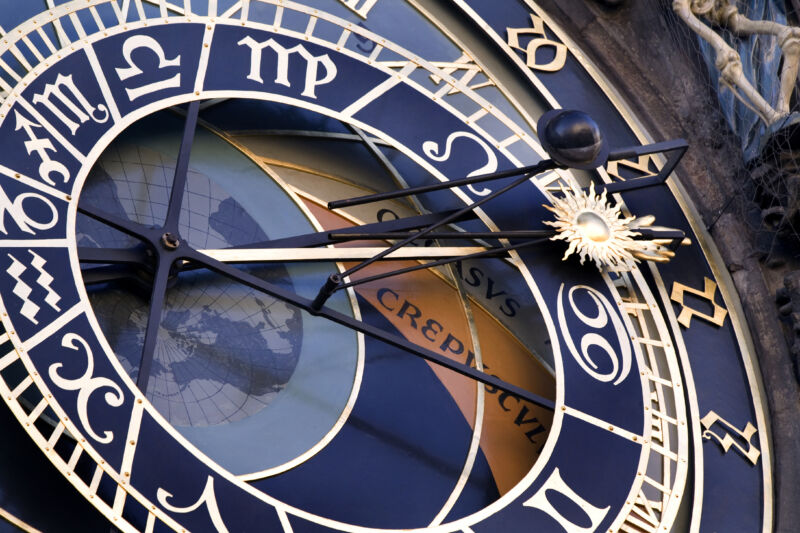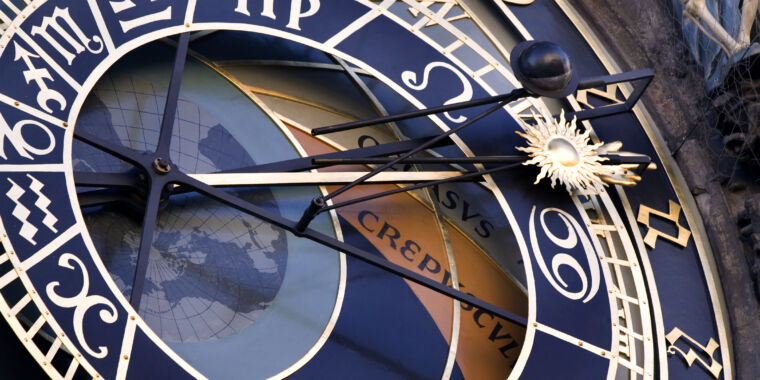
Getty Photographs
There will not be many issues you will get Fb, Google, the USA, France, and Linus Torvalds to agree on, however certainly one of them has come to move.
A near-unimous vote on Friday in Versailles, France, by events to the Worldwide Bureau of Weights and Measures (BIPM in its native French) on Decision 4 implies that beginning in 2035, the leap second, the remarkably sophisticated method of aligning the Earth’s inconsistent rotation with atomic-precision timekeeping, will see its use discontinued. Coordinated Common Time, or UTC, will run with out them till 2135. It was unclear whether or not any leap seconds may happen earlier than then, although it appears unlikely.
The belief is that inside these 100 years, time-focused scientists (metrologists) could have discovered a solution to synchronize time as measured by people to time as skilled by our planet orbiting the Solar. However most individuals is not going to discover any distinction in any respect, even because the time distinction may attain as much as one minute by the top of that 100 years.
“The connection between UTC and the rotation of the Earth will not be misplaced, UTC stays associated to Earth,” Dr. Patrizia Tavella, head of BIPM’s time division, advised Agence France-Presse (AFP).
Russia’s BIPM representatives voted in opposition to the decision, and Belarus abstained. Tavella advised AFP that Russia’s opposition was not “on precept,” but it surely wished to delay the leap second removing till 2040. GLONASS, Russia’s satellite tv for pc positioning system, incorporates leap-second-like changes and can must be reworked. A 2035 date was a compromise with different entities that wished to maneuver up the leap second eradication, Tavella advised AFP.
System directors in all places, particularly at bigger corporations, won’t ever know what catastrophes await them with the subsequent leap second. Leap seconds in 2012 and 2017 precipitated multi-hour outages at corporations together with Reddit, Qantas, and Cloudflare. Many corporations carried out a model of “leap smearing” to easy out a leap second addition into micro-seconds unfold throughout the globe all through a day.
Meta was the most recent voice to talk in opposition to leap seconds over the summer season. The 27 leap seconds which were utilized since their introduction in 1972 have been “sufficient for the subsequent millennium,” its engineers wrote in a weblog submit. In addition they raised the specter of a second unfavourable leap, which may topic networks to new variations of time-syncing torture.
Whereas the BIPM’s vote set a coverage for disregarding leap minutes, the entity that really coordinates and disseminates UTC, the Worldwide Telecommunication Union (ITU), may doubtlessly intervene. Felicitas Arias, a former BIPM time director, advised the journal Nature that the ITU’s ultimate say is “the factor that makes us a little bit bit nervous.” But Arias advised The New York Instances that negotiations between the BIPM and ITU had her satisfied of success.
The ITU’s subsequent decision-making convention takes place in late 2023 in Dubai, United Arab Emirates, round when the contract for ITU to take care of UTC time expires. After that, the leap second’s time will probably come.

